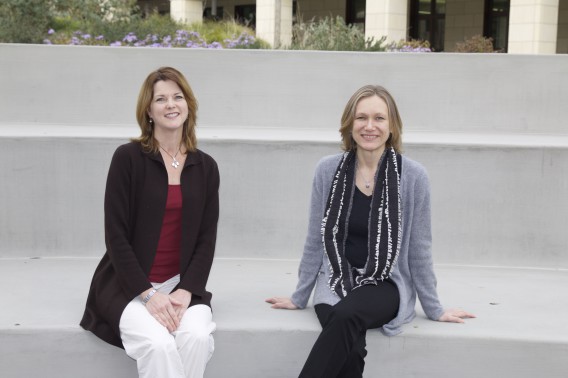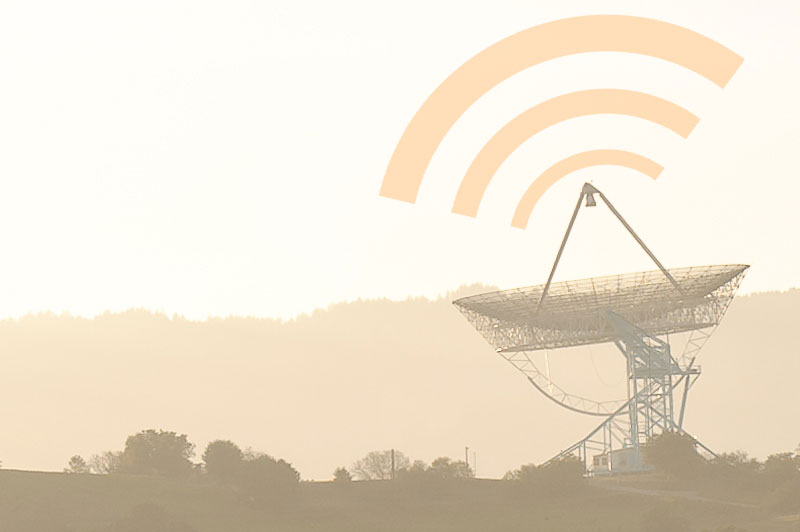Stanford environmental researchers work to put sustainability into action

ANNA MICHALAK‘s study of the Earth’s climate could soon take a giant leap forward, when a newly launched satellite begins to deliver the most comprehensive available measurements of atmospheric carbon dioxide ever obtained. A team led by Michalak, a faculty member in the Carnegie Institution for Science’s Department of Global Ecology, on Stanford’s campus, will study this data to better understand the processes controlling climate variability.
Michalak hopes her ability to share this information with policymakers and decision-makers will also be enhanced this year, with help from the Leopold Leadership Program.
This year, Michalak and Stanford’s JENNA DAVIS, associate professor of civil and environmental engineering, have been selected along with 18 other researchers around the country to join the ranks of the prestigious fellowship program for environmental researchers.
Based at Stanford, the fellowship program provides outstanding academic environmental researchers with skills and approaches for communicating and working with partners in NGOs, business, government and communities to integrate science into decision-making. The program is funded by the David and Lucile Packard Foundation and the William and Flora Hewlett Foundation. PAMELA MATSON, the Chester Naramore Dean of Stanford’s School of Earth, Energy & Environmental Sciences, is co-director of the program and is also a fellow.
In Michalak’s case, she looks forward to sharing findings about the lifecycle of carbon on Earth gleaned from the recently launched satellite Orbiting Carbon Observatory-2. Data from the satellite – planned for initial public release at the end of this month – will be instrumental in helping scientists more accurately predict how the climate will change in the future.
“Engaging with the legal, economic, and policy impacts of my research was a major factor that brought me to the Leopold Leadership Program,” Michalak said. “As a fellow, I look forward to honing my ability to target key opportunities for putting my science into action, and to further improving my skills in translating knowledge into usable information when those opportunities present themselves.”
Davis, associate professor of civil and environmental engineering and the Higgins-Magid Senior Fellow in the Stanford Woods Institute for the Environment, conducts research on water and sanitation in developing countries and has carried out fieldwork in more than a dozen countries, including the Philippines, Mozambique and Bangladesh. “A primary goal for my fellowship period is to develop the skills and strategies I need to share my group’s research more effectively with non-academic audiences,” she said. “I’m also looking forward to learning about the theory and practice of effective leadership within different contexts.”
The fellowship officially will begin in June with a weeklong training that focuses on three themes of collective leadership: innovation, communication and collaboration. Fellows will engage in a range of workshops and sessions that are facilitated by fellows themselves as well as trainers with specific domain knowledge. During the year, fellows participate in monthly small group teleconferences, in which they discuss progress toward achieving goals they set at the training. At the end of the year, the full cohort reconvenes to reflect on their progress, gain additional skills and articulate the kinds of roles they envision for themselves in leading change on their issue of interest.
“We recognize that long-term, cross-sector relationships are needed to solve the complex sustainability challenges facing the planet today,” said PAM STURNER, executive director of the fellowship program. “Our goal is for fellows to deploy the skills they learn to develop long-term relationships for effecting change throughout their careers.”
This year’s 20 Leopold Leadership Fellows are from academic institutions in the United States and Canada and are conducting innovative research in a wide range of disciplines, including ecology, marine science, engineering, geography, genomics and Native American studies. They join a network of 195 past fellows who are engaged in broad-based efforts to solve society’s most pressing sustainability challenges.
To see a full list of fellows and their institutions, including those affiliated with Stanford, visit the Leopold Leadership Program website.

